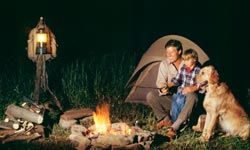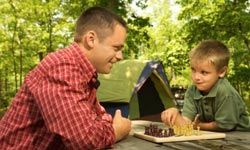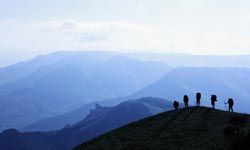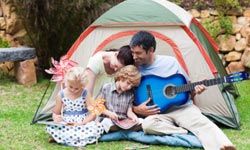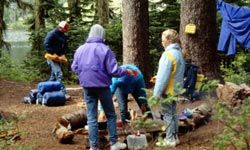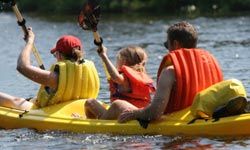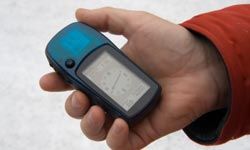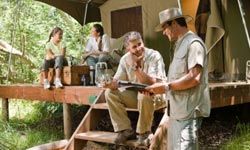Camping (especially with kids) takes a lot of effort, but the payoff is huge. Not only does everyone benefit from the mental break a loosely planned schedule allows, but there are nearly endless ways to experience new things.
A natural setting offers a dynamic, ever-changing canvas for your children to explore and observe, and this will keep them occupied most of the time. Still, it pays to be prepared by having a "go-to" bag of tricks. Most children go at full speed -- all day. Planning a few activities will keep them occupied, engaged and free from the "I'm bored" refrain. Plus, staying active in the great outdoors is a great way to strengthen family ties. From card games to geocaching, our guide's full of great ways to have fun.
Advertisement
